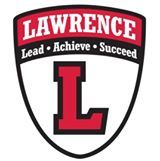In the wake of Black parents’ push for the Lawrence Township Public Schools to make educational equity a priority for Black students and other minorities, school district officials have taken steps to meet that goal – ranging from professional development seminars for teachers to reviewing the district’s hiring practices.
Three of the school district’s recently appointed “Equity Warriors” – teachers who serve as equity leaders in each school to support the planning and delivery of professional development seminars to staff – outlined the progress that has been made over the past three months and what the district can do as it moves forward.
Equity Warriors Marisol Gutierrez, Justin Schleider and Erika Smoots presented their findings to the Lawrence Township Public Schools Board of Education at its Sept. 9 meeting. Smoots and Gutierrez are teachers at the Ben Franklin Elementary School and Schleider teaches at the Lawrence Intermediate School.
Setting the stage for the presentation, Schleider told the school board that based on a district-wide survey, only 49% of the students reported a sense of belonging.
Feedback from that survey revealed that students believe it is hard to talk about race with their teachers, and that they wished their teachers would be more open to talking about current events that related to racism – even when they are off topic – “because (students) still need to hear about it,” Schleider said.
Quoting from the survey, Schleider said students wished adults knew that “sometimes it can be very isolating when you’re a minority, no matter how outgoing you might be.” They said they wished that adults knew that some people are bullied because of their race, ethnicity or culture.
One survey respondent said that “I wish that they knew that some people in our school are treated unfairly because of race. People are saying the ‘n’ word like it’s nothing, when it’s extremely rude, disrespectful and hurtful,” Schleider reported.
Turning to race, White students make up 44.8% of the student enrollment in the district and Blacks make up 15.1%, Schleider said. Hispanic students are 14.8% of the student enrollment.
But Black students accounted for 36% of all in-school suspensions and 41.6% of out-of-school suspensions, or more than twice their overall percentage of enrollment. White students accounted for 33.3% of in-school suspensions and 28.1% of out-of-school suspensions – less than their overall percentage of enrollment.
The percentage of Hispanics who were given in-school and out-of-school suspensions more closely matched their overall enrollment of 14.8%. In-school suspensions were given to 14.1% of Hispanic students, and 10.8% of out-of-school suspensions.
So what is the Lawrence Township Public Schools doing to make changes?
Gutierrez said the district has appointed Equity Warriors in each school building. School district officials brought in consultants Val Brown and Rebeka Cordova to hold professional development seminars. They have trained the Equity Warriors to bring joy into the classroom.
Teachers are learning how to work toward “collective liberation,” in which all identity groups have a sense of belonging, Gutierrez said. Equity is about all identity groups and not just race, she said. It includes gender, socio-economic status, social class, sexual orientation, disabilities and religion.
There is also an element of social justice, which Smoots said is defined as “the view that everyone deserves equal economic, political and social rights and opportunities.” Social justice is ensuring that all students get what they need to be successful, she said.
Bias gets in the way of social justice, but bias can be unlearned or reversed if children are exposed to diversity in a positive way, Smoots said. Gradually, children learn about gender and race. By the time they are 3 years old, they have begun to racially categorize themselves and others. They include or exclude other children on that basis, she told the school board.
Smoots outlined several strategies to teach the district’s new social justice curriculum – from using children’s literature to teaching anti-bias lessons, giving familiar examples that children can relate to when talking about issues such as gender. They can also explore possible solutions and take action.
Every elementary school teacher in grades K-6 will learn about skin color and socio-economic differences, Smoots said. They will learn about bias and prejudice, and the struggles brought on by poverty, she said.
The teachers will learn about diverse families – two-parent and one-parent families, families with two moms or two dads, adoptive parents, and families in which parents are of different races, Smoots said.
Through professional development seminars, teachers will learn about disabilities – physical, emotional and learning disabilities – as well as women’s studies and women’s rights, she said. They will learn about refugees and immigrants, and why they have come to the United States.
In asking for the school board’s support for the social justice curriculum, Smoots said that “everyone in our community has to realize that if one person in Lawrence is suffering, we are all suffering. As a district, we need to make a commitment to take care of everyone in our community.”
Thanking Smoots, Gutierrez and Schleider, Superintendent of Schools Ross Kasun expressed support for equity and social justice in the schools. He said he was “so excited for our future. We have a multi-year plan to support our Equity Warriors. The staff is excited and they are asking about our next steps.”
School board president Kevin Van Hise said the school board has been working on equity issues over the past several years. It was part of the set of interview questions posed to Kasun when the district was interviewing candidates for the superintendent’s post, he said.
“The Equity Warriors have the support of the school board,” Van Hise said.

